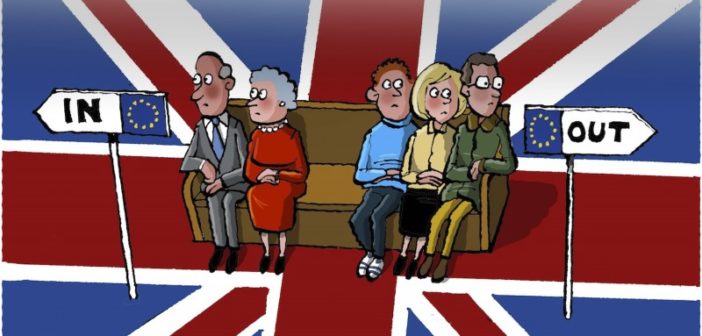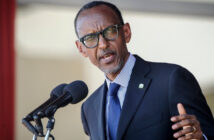Britons from the far Scottish isles to the tip of Gibraltar began casting their ballots this day in a historic referendum that could rock the global economy and deeply unsettle the Western political order.
After months of bitter campaigning that sharply divided the country over questions of immigration and identity, election day dawned with a cliffhanger: Final polls showed Britons almost exactly split over whether the country should exit the 28-member European Union.
Voting will take place throughout the day, and the results are expected early tomorrow Friday.
Although “leave” had been leading the polls recently, “remain” has caught up since pro-E.U. member of Parliament Jo Cox was fatally shot and stabbed last week, jolting the country and prompting calls for an end to some of the campaign’s more hateful rhetoric.
The referendum marks an existential decision that could dramatically reshape Britain’s global role in a way not seen since London shed its empire after World War II. It could also lead to another push on Scottish secession, the further unraveling of the European Union and the fall of Prime Minister David Cameron’s government.
Advocates for a British exit — popularly known as Brexit — argue that tossing off the shackles of E.U. bureaucracy will restore Britain’s sovereignty. A powerful selling point for many votes is the claim that a farewell to E.U. ties could give the country the latitude to dramatically reduce immigration, which has hit record highs as Poles, Hungarians, Romanians and others from across Europe have flocked to the relative prosperity of the British economy.
But opponents say a vote to leave could be a grievous self-inflicted wound from which it would take years, if not decades, for Britain to recover.
Most economic, political and defense authorities — including nearly all foreign leaders — have joined the call for Britain to stay, and they have issued dire warnings about the consequences of Brexit.
Economic forecasters have said a British break could push the country back into recession, with the rest of the globe vulnerable to the ripples. Many geopolitical strategists also warn that a vote to leave could divide the Western alliance and be a boon to others such as Russian President Vladimir Putin.
But many of the 46 million Britons eligible to vote have paid little heed, with surveys showing that anxiety over immigration is trumping all other voter concerns.
The “leave” campaign has played on those fears, arguing — with little supporting evidence — that Turkey will soon join the European Union and intensify the flood of migrant workers arriving on British shores under the bloc’s free-movement rules.
It has also dismissed warnings from independent experts as part of an elitist plot, what it terms “Project Fear.”
Two of the top Brexit campaigners — Johnson and Justice Secretary Michael Gove — have invoked provocative Nazi comparisons. Johnson has suggested that E.U. ambitions mirror those of Hitler’s Germany, and Gove has painted Brexit critics as akin to Nazi propagandists who sought to discredit Albert Einstein.
The “remain” side has returned fire in recent days.
London Mayor Sadiq Khan castigated the anti-E.U. camp’s anti-immigrant message as “Project Hate.” Meanwhile, former prime minister John Major on Wednesday called Johnson and Gove, both fellow Conservatives, “gravediggers of our prosperity.”
Another former prime minister, Gordon Brown, decried the overall tone of a debate that has been marked by xenophobia and nativism. “This is not the Britain I know,” he said.
Whichever side wins Thursday will have to reckon with the profound and emotional schisms in British society that has come to the surface during the campaign.




